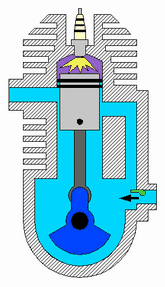
Photo from wikipedia
A DC power flow controller (DCPFC) can help to facilitate power flow routing in the multi-terminal high-voltage direct current (HVDC) transmission system. Realizing its multi-port output can effectively improve the… Click to show full abstract
A DC power flow controller (DCPFC) can help to facilitate power flow routing in the multi-terminal high-voltage direct current (HVDC) transmission system. Realizing its multi-port output can effectively improve the device regulate range and capability. Based on analysis of the traditional multi-port interline DC power flow controller (MI-DCPFC), this paper presents a switches reduced topology of MI-DCPFC. In addition, for solving the problem of coupling of the port-output voltage of the traditional MI-DCPFC, a novel control strategy based on carrier phase shifting pulse width modulation (CPS-PWM) is proposed. It implements the decoupling of the port-output voltage of MI-DCPFC, which can ensure completely independent tracking of the power flow regulating commands for different controlled lines. Moreover, key relationships between the system state variables are also analyzed and detailed in this study. Finally, the performance of the proposed controller and control strategy are confirmed with the simulation and experiment studies under different conditions.
Journal Title: Energies
Year Published: 2019
Link to full text (if available)
Share on Social Media: Sign Up to like & get
recommendations!